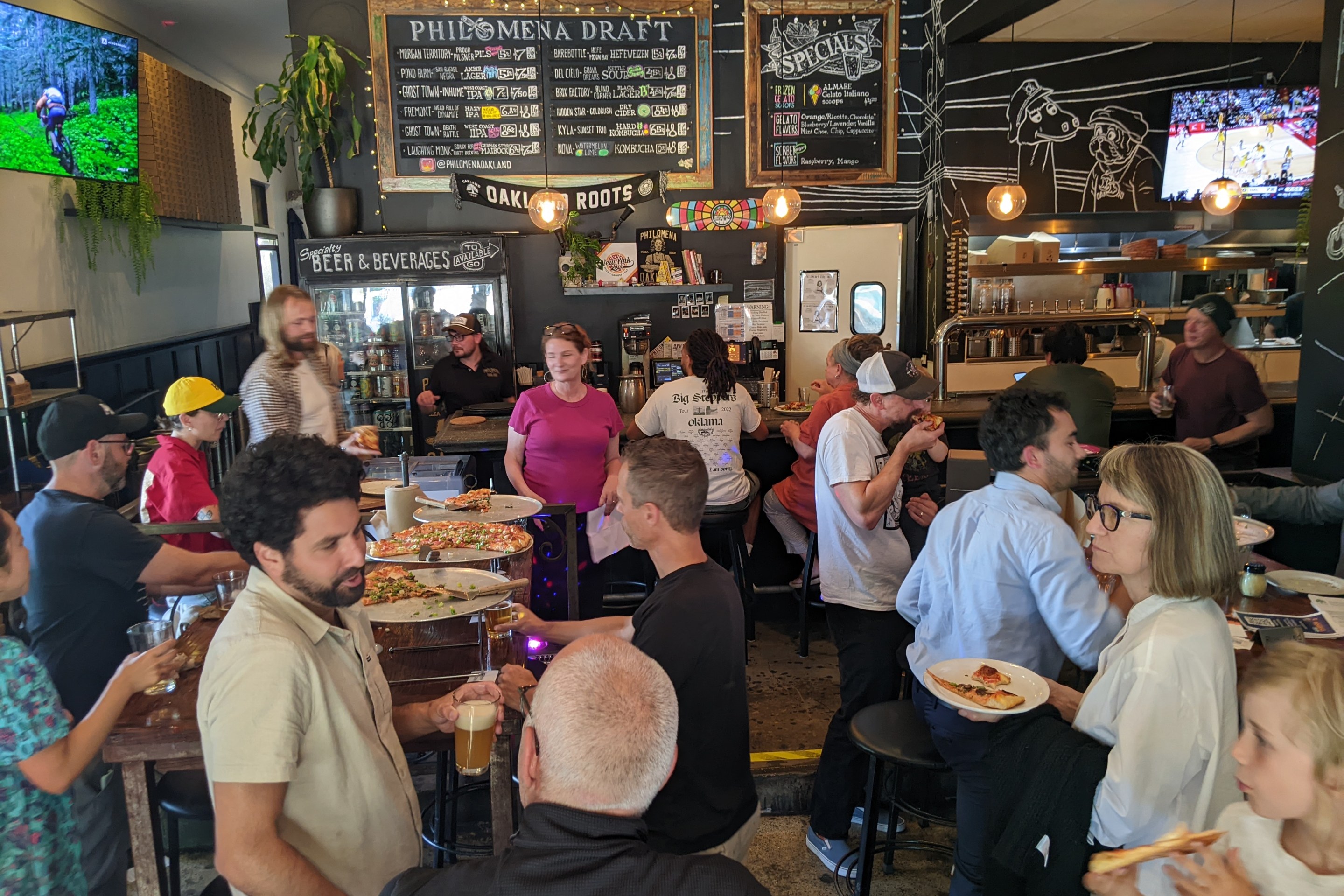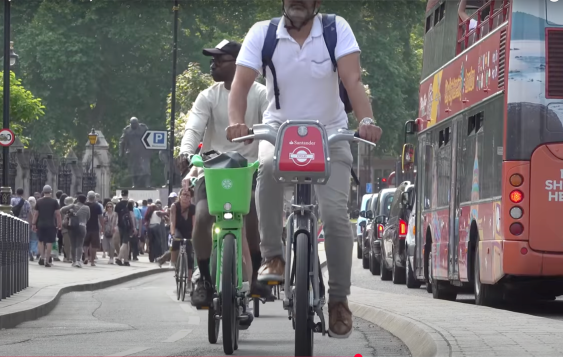The folks at SF Weekly seem really upset about the end of free car parking on Sundays. The shock is apparently severe enough that Erin Sherbert put up a post yesterday directing readers to sign the petition demanding an absolute end to the SF Municipal Transportation Agency's expansion of parking meters, launched by the Eastern Neighborhoods United Front (ENUF). (Just a reminder: ENUF's spokesperson won a Streetsie Award this year for "most absurd argument against SFPark meters.")
Signing on the to ENUF petition, Sherbert wrote, is car owners' last stand against "the new oppressive parking rules."
Apparently SF Weekly is little behind the curve when it comes to the basic nuts and bolts of parking policy. But in a sign that you don't need a parking PhD to get why meters make streets work better for everyone, SF Weekly's readership seemed to welcome the end of free parking on Sundays.
None of the readers commenting on the SF Weekly post were actually "pissed off" about Sunday parking. To the contrary, there were a few comments supporting Sunday meters, like "bulk2," who wrote, "Sorry, but free parking on Sunday is a legacy from an era when shops were closed Sundays... I'm sick of my taxpayer dollars going to fund everyone's private car parking on public streets. Muni still costs $2 on Sundays last I checked." Reader "ChachitoSF" simply asked, "Is this a joke? Know your readership or rename yourselves 'Walnut Creek Weekly.'"
The reaction on Twitter was similar. Transbay Blog's Eric C. pointed out that SF Weekly isn't in the habit of telling readers what they can do "if we're pissed about paying for Muni on Sunday." And @LightExposures suggested that anyone "pissed about paying for parking on Sunday" should "ride a bike, and calm the hell down."
Of course, no one likes having to pay for something they've been getting for free. But as @peternocturnal pointed out with a touch of snark ("Outrageous that I should have to pay for my own lifestyle. Charge it to the taxpayers!"), SF's dysfunctional free Sunday parking regime was a burden to everyone who had to circle the block endlessly for a spot, everyone who had to put up with commercial streets clogged with traffic, noise, and exhaust, and all the merchants who lost business because of the lack of parking turnover.
All told, free Sunday parking was much more "oppressive" than paying a price to use scarce street space for automobile storage. That's why supporters of SFPark started their own petition encouraging its expansion. It's a point we make repeatedly on Streetsblog, and hopefully the editors at SF Weekly got the message coming from their readers.





